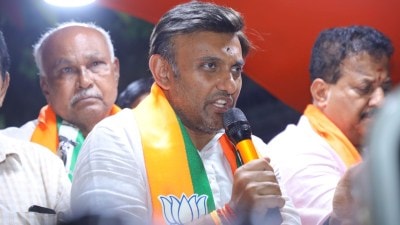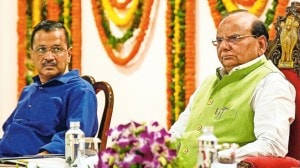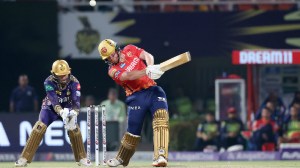- India
- International
Making of a diversified Tamil Nadu: How Karunanidhi blended good politics, good economics for state’s growth
One of Karunanidhi's trusted ministers, S Madhavan, then took it forward, with the concept of a joint sector where the state too was a partner, starting with, besides building, large industrial parks and infrastructure across the state.
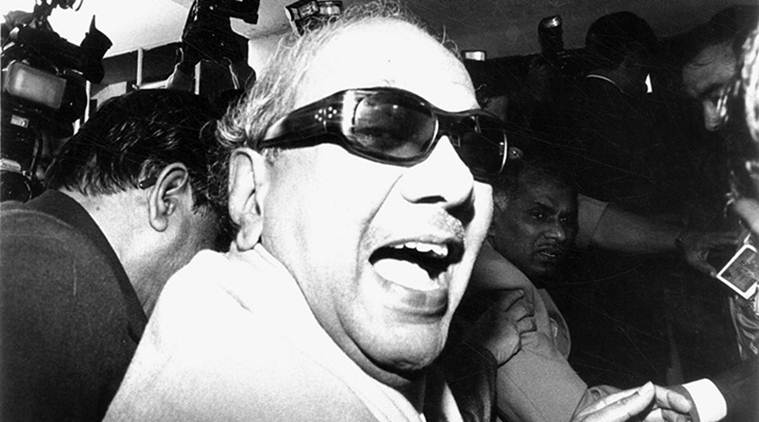 Soon after his party came to power, DMK chief M Karunanidhi was in New Delhi for meetings. (Express archive)
Soon after his party came to power, DMK chief M Karunanidhi was in New Delhi for meetings. (Express archive)
In the run-up to the 1989 elections in Tamil Nadu, which came after a spell of President’s rule, the DMK had opposed the building of the nuclear power project in Kudankulam in Tirunelveli district of Tamil Nadu. But soon after his party came to power, DMK chief M Karunanidhi was in New Delhi for meetings. At one of those meetings, where he met senior IAS officers from the state who were working in ministries in the national capital, he sent for a secretary to the government. He told this officer that his party had indeed protested against the nuclear project, an agreement that had been signed first in 1988 between Prime Minister Rajiv Gandhi and his Russian counterpart Leonard Brezhnev, but wanted to make sure that a Rs 10,000 crore project should not go out of the state. There were lots of jobs the project would generate, he acknowledged, and advised the bureaucrat to form an environment committee and told him that gradually these protests would be muted and the project could take off.
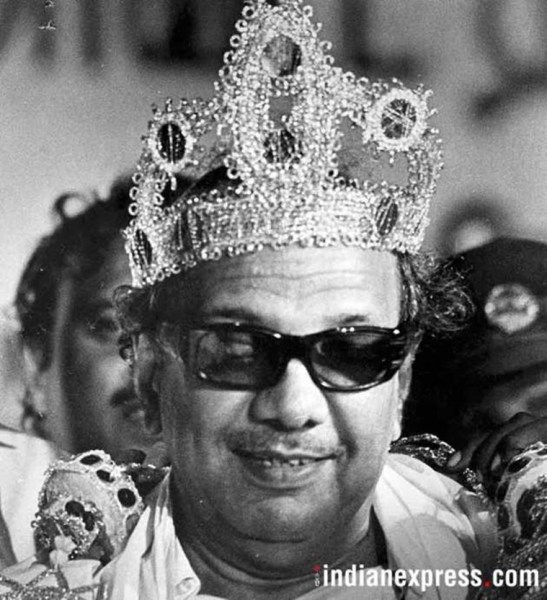 M Karunanidhi (Express Archive)
M Karunanidhi (Express Archive)
It did many years later, generating power which came in handy for the state, though he and his party would protest again in 2011. Karunanidhi would rationalise it later, saying the DMK always supported industrial growth in a “scientific manner”.
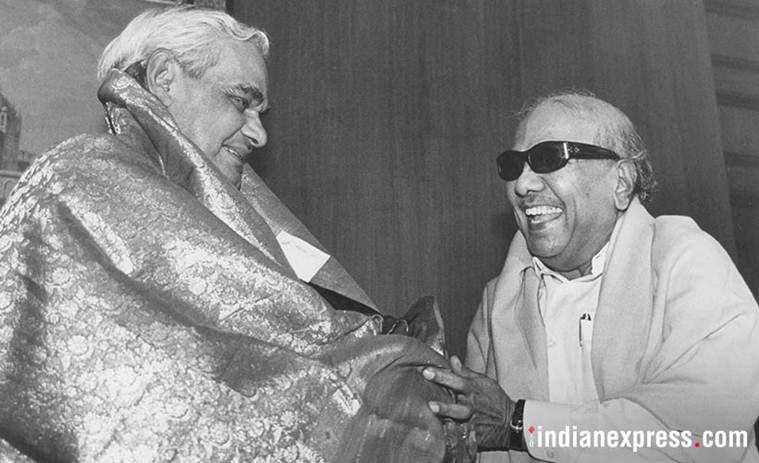 Karunanidhi with Atal Bihari Vajpayee. (Express archive)
Karunanidhi with Atal Bihari Vajpayee. (Express archive)
That strategy was on display when he returned as CM in 1996. During the fag end of J Jayalalitha’s first term as CM, the state bureaucracy was trying to push a project by the US automobile giant Ford, offering a package to attract the company to set up shop in Tamil Nadu. He didn’t attempt to stop the project that originated during his predecessor’s time, but rather went on to woo South Korea’s Hyundai, which led to the spawning of other auto component firms and emergence of the Greater Chennai region as the country’s auto capital.
But it was years before that — in the early 1970s — during his first term as CM that the early steps towards making Tamil Nadu perhaps the most diversified state in terms of industrial development were taken. By then R Venkataraman, who was Industries Minister during Congress rule in the 1960s and who was later the country’s President, had promoted the concept of industrial estates and institutions to finance such industries and an enabling infrastructure and environment. One of his trusted ministers, S Madhavan, then took it forward, with the concept of a joint sector where the state too was a partner, starting with, besides building, large industrial parks and infrastructure across the state. A few decades later, it was in the form of growth centres and incentives for the electronic industry, which was in a sunrise phase in the late 1980s and during the 1990s.
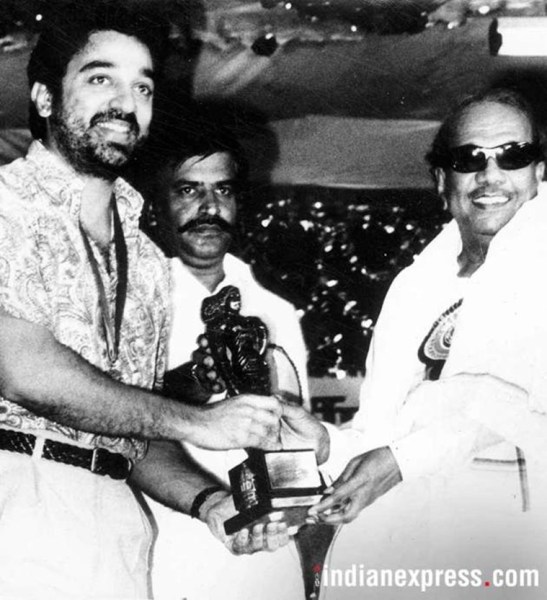 Apart from being a politician, he was also a playwright and screenwriter in Tamil cinema. Here, film star Kamal Hassan receives an award from M Karunanidhi. (Express archive)
Apart from being a politician, he was also a playwright and screenwriter in Tamil cinema. Here, film star Kamal Hassan receives an award from M Karunanidhi. (Express archive)
In his recent book, Dravidian Years – Politics and Welfare in Tamil Nadu, former Union finance secretary and Economic Advisor to Prime Minister Atal Bihari Vajpayee, S Narayan, an IAS officer from Tamil Nadu, says that the development indicators for the state increased significantly during the decade of the ’70s. The state domestic product grew by 17 per cent at constant prices between 1970 and 1976, per capita incomes rose by around 30 per cent, literacy rates went up from 39.5 per cent in the 1971 census to 54.4 per cent in the 1981 census while infant mortality rates too dropped. Though significant growth occurred in the years when M G Ramachandran was in power heading the AIADMK government, Narayan argues that the foundations for growth were laid during the initial DMK years.
Apr 27: Latest News
- 01
- 02
- 03
- 04
- 05











